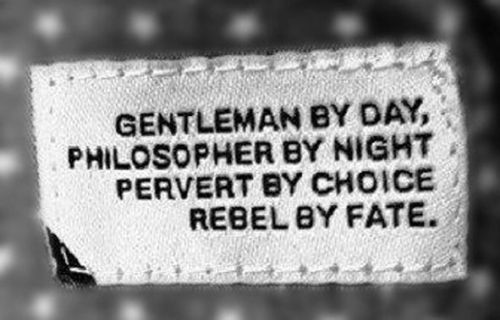
To Kill a Mockingbird is a Pulitzer Prize-winning novel by Harper Lee published in 1960. It was instantly successful and has become a classic of modern American fiction. The novel is loosely based on the author's observations of her family and neighbors, as well as on an event that occurred near her hometown in 1936, when she was 10 years old.
The novel is renowned for its warmth and humor, despite dealing with serious issues of rape and racial inequality. The narrator's father, Atticus Finch, has served as a moral hero for many readers and as a model of integrity for lawyers. One critic explained the novel's impact by writing, "In the twentieth century, To Kill a Mockingbird is probably the most widely read book dealing with race in America, and its protagonist, Atticus Finch, the most enduring fictional image of racial heroism."
Songbirds and their associated symbolism appear throughout the novel. For example, the family's last name is Finch. The titular mockingbird is a key motif of this theme, which first appears when Atticus, having given his children air-rifles for Christmas, allows their Uncle Jack to teach them to shoot. Atticus warns them that, although they can "shoot all the bluejays they want", they must remember that "it's a sin to kill a mockingbird". Confused, Scout approaches her neighbor Miss Maudie, who explains that mockingbirds never harm other living creatures. She points out that mockingbirds simply provide pleasure with their songs, saying, "They don't do one thing but sing their hearts out for us." Writer Edwin Bruell summarized the symbolism when he wrote in 1964, "'To kill a mockingbird' is to kill that which is innocent and harmless—like Tom Robinson."Scholars have noted that Lee often returns to the mockingbird theme when trying to make a moral point.
Tom Robinson is the chief example among several innocents destroyed carelessly or deliberately throughout the novel. However, scholar Christopher Metress connects the mockingbird to Boo Radley: "Instead of wanting to exploit Boo for her own fun (as she does in the beginning of the novel by putting on gothic plays about his history), Scout comes to see him as a 'mockingbird' – that is, as someone with an inner goodness that must be cherished." The last pages of the book illustrate this as Scout relates the moral of a story Atticus has been reading to her, and in allusions to both Boo Radley and Tom Robinson states about a character who was misunderstood, "when they finally saw him, why he hadn't done any of those things ... Atticus, he was real nice," to which he responds, "Most people are, Scout, when you finally see them."
The novel exposes the loss of innocence (and innocents) so frequently that reviewer R. A. Dave claims it is inevitable that all the characters have faced or will face defeat, giving it elements of a classical tragedy. In exploring how each character deals with his or her own personal defeat, Lee builds a framework to judge whether the characters are heroes or fools. She guides the reader in such judgments, alternating between unabashed adoration and biting irony. For example, irony is employed by Lee as Scout witnesses the Missionary Society meeting, whose members mock Scout, gossip, and "reflect a smug, colonialist attitude toward other races" while giving the "appearance of gentility, piety, and morality". Conversely, when Atticus loses Tom's case, he is last to leave the courtroom, except for his children and the black spectators in the colored balcony, who rise silently as he walks underneath them, to honor his efforts.

The book was made into the well-received 1962 film with the same title, starring Gregory Peck as Atticus Finch. The film's producer, Alan J. Pakula, remembered Paramount Studios executives questioning him about a potential script: "They said, 'What story do you plan to tell for the film?' I said, 'Have you read the book?' They said, 'Yes.' I said, 'That's the story.'"The movie won three Oscars: Best Actor for Gregory Peck, Best Art Direction-Set Decoration, Black-and-White, and Best Writing, Screenplay Based on Material from Another Medium for Horton Foote. It was nominated for five more Oscars including Best Actress in a Supporting Role for Mary Badham, the actress who played Scout.
Harper Lee was pleased with the movie, saying: "In that film the man and the part met... I've had many, many offers to turn it into musicals, into TV or stage plays, but I've always refused. That film was a work of art." Peck met Lee's father, the model for Atticus, before the filming. Lee's father died before the film's release, and Lee was so impressed with Peck's performance that she gave him her father's pocketwatch, which he had with him the evening he was awarded the Oscar for best actor. Years later, he was reluctant to tell Lee that the watch was stolen out of his luggage in London Heathrow Airport. When Peck eventually did tell Lee, he said she responded, "'Well, it's only a watch.' Harper—she feels deeply, but she's not a sentimental person about things." Lee and Peck shared a friendship long after the movie was made. Peck's grandson was named "Harper" in her honor.
In May 2005, Lee made an uncharacteristic appearance at the Los Angeles Public Library for an event in her honor. It was hosted by Peck's widow Veronique, who said of Lee: "She's like a national treasure. She's someone who has made a difference...with this book. The book is still as strong as it ever was, and so is the film. All the kids in the United States read this book and see the film in the seventh and eighth grades and write papers and essays. My husband used to get thousands and thousands of letters from teachers who would send them to him."
Gregory Peck's performance became synonymous with the role and character of Atticus Finch. Alan J. Pakula remembered hearing from Peck when he was first approached with the role: "He called back immediately. No maybes. The fit was among the most natural things about a most natural film. I must say the man and the character he played were not unalike." Peck later said in an interview that he was drawn to the role because the book reminded him of growing up in La Jolla, California. "Hardly a day passes that I don't think how lucky I was to be cast in that film," Peck said in a 1997 interview. "I recently sat at a dinner next to a woman who saw it when she was 14 years old, and she said it changed her life. I hear things like that all the time."
Upon Peck's death in 2003, Brock Peters, who played Tom Robinson in the film version, quoted Harper Lee at Peck's eulogy, saying, "Atticus Finch gave him an opportunity to play himself". Peters concluded his eulogy stating, "To my friend Gregory Peck, to my friend Atticus Finch, vaya con Dios." Peters remembered the role of Tom Robinson when he recalled, "It certainly is one of my proudest achievements in life, one of the happiest participations in film or theater I have experienced." Peters remained friends not only with Peck but with Mary Badham throughout his life.























No comments:
Post a Comment